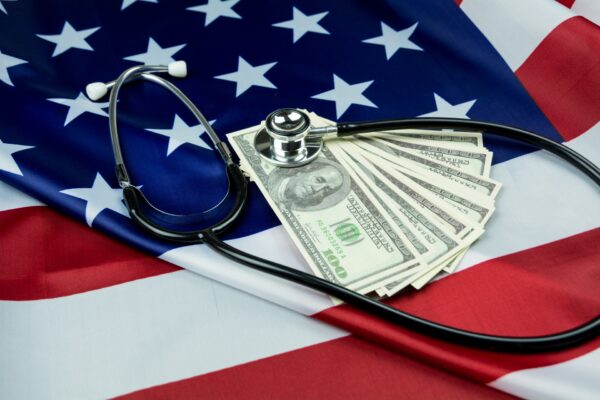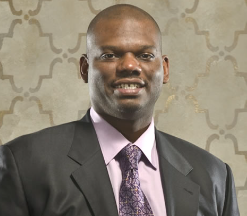A mountain of medical debt is keeping Black-owned businesses across the nation from thriving, according to new research published earlier this month.
Black business owners face greater financial challenges along with greater financial barriers to health care, a survey of 4,000 business owners, employees and self-employed workers from Intuit QuickBooks found. About 40 percent of Black respondents said they have thousands of dollars in medical debt. On average, Black respondents are $18,000 deep in medical debt, the survey also found.

The survey results mean “that Black-owned businesses are more than twice as likely as others to be financially stressed right now,” QuickBooks’ data communications manager Simon Worsfold wrote in a blog post about the survey.
Medical debt is a nationwide problem almost as large as the amount of outstanding credit card debt or student loans. As of June 2020, Americans hold roughly $140 billion in past-due medical bills, as shown by Journal of the American Medical Association data.
Black Americans however are carrying disproportionately more debt than other ethnicities, studies have shown. About 28 percent of Black households have medical debt compared to 17 percent of White households, according to the latest U.S. Census data from 2018.
Black Americans are drowning in medical debt because they typically hold jobs where the position doesn’t offer health insurance or the role doesn’t pay enough for workers to cover hospital bills, researchers have said. The trend keeps Black households in debt for decades and robs them of a chance at building wealth, researchers have said.
Unpaid medical bills, which are considered a personal debt, cannot technically torpedo a Black entrepreneur’s company. However, medical debt can still negatively impact the growth of a Black-owned business. For example, if a bill goes unpaid and lowers the person’s credit score, it could lead to a would-be business owner being denied a small business loan.
A Black business owner with large medical debt could opt to use profits from the company to pay down the debt, thus hampering the amount of funds that should be used to reinvest in and grow the business.
“Medical debt and the lack of health coverage can significantly impact the overall well-being of business owners, particularly Black business owners, who have already been disproportionately affected by the pandemic,” Worsfold told Forbes magazine.
The QuickBooks survey doesn’t detail how Black business owners are juggling their medical debt. More than half of the Black respondents said they expect their finances to improve this year, the survey found.
Experts have said there are a few ways the U.S. can address the medical debt problem Black Americans face. One option is to ditch the method of paying doctors and hospitals every time a service is provided and switch to giving payments only after a patient has experienced long-term positive health improvements. The new method, known in the health-care field as value-based payments, would help Black households, experts have said.
Joseph Fifer, CEO of the Healthcare Financial Management Association, said in an op-ed in 2021, that the coronavirus pandemic shined a light on how much medical debt Black Americans carry. Some health-care systems have started to adapt value-based, “but the transition to VBP has been slow,” Fifer said.
Another option is to adopt universal health care, so that no household leaves the hospital with a bill. Under that scenario, today’s debt will be paid off eventually and no new debt will be created for households, researchers argue.
Andre Perry and other researchers at the Brookings Institution said they believe that by “reducing the amount of medical debt held by all households, we are disproportionately helping Black people.”
“However, maintaining a health care system that ensures that many take on debt while others don’t ensures that it will be a privilege,” Perry and the others said in an October 2021 study.




